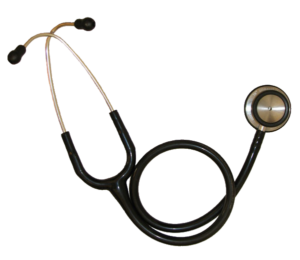 Once again, two opposing views about beards have been in the news - that they harbor all sorts of nasty disease-causing bacteria vs they are hygienic. An earlier May 5, 2015 post was about the question of whether bearded men have more bacteria on their faces than clean shaven ones. I cited a 2014 study found that they don't, and that we are all covered with bacteria, all sorts of bacteria, and this is normal.
Once again, two opposing views about beards have been in the news - that they harbor all sorts of nasty disease-causing bacteria vs they are hygienic. An earlier May 5, 2015 post was about the question of whether bearded men have more bacteria on their faces than clean shaven ones. I cited a 2014 study found that they don't, and that we are all covered with bacteria, all sorts of bacteria, and this is normal.
Now another study has looked at the issue of hospital workers with and without beards and whether they carry infectious bacteria. Researchers swabbed the faces (center of the cheek and the skin of the upper lip under the nostrils) of both clean shaven individuals and individuals with facial hair (beards) that worked in two hospitals (they all had direct contact with patients) and looked at the bacteria present. They especially looked for the presence of the bacteria Staphylococcus aureus, which surprisingly was found more in the clean-shaven men.
Also to their surprise, it was more of the clean shaven men who carried the pathogenic bacteria Methicillin-resistant Staphylococcus aureus (also known as MRSA). For those bacterial groups most closely associated with hospital acquired infections, such as Klebsiella species, Pseudomonas species, Enterobacter species., and Acinetobacter species, prevalence was low in both groups, and less than 2% for each group.
For other, less harmful bacteria, researchers found that bearded employees harbored no more bacteria than their clean-shaven colleagues. In summary: The researchers say that "results suggest that male hospital workers with facial hair do not harbour more potentially concerning bacteria than clean-shaven workers, and that in some instances, clean-shaven individuals are significantly more likely to be colonized with potential nosocomial pathogens". (NOTE: nosocomial means a disease originating or acquired in a hospital.)
And why is that? According to the study, one explanation is "microtrauma to the skin," which occurs during shaving and results in abrasions, which could support bacterial colonisation and growth of bacteria on the clean-shaven men. However, some other researchers have a different hypothesis — that beards themselves actually fight infection.
This stems from an experiment carried out by Dr. Michael Mosley who recently swabbed the beards of a variety of men and sent the samples to Dr. Adam Roberts, a microbiologist at University College London. Roberts grew more than 100 different bacteria from the beard samples, but found that in a few of the petri dishes a microbe was killing the other bacteria - a bacteria called Staphylococcus epidermidis, and which they believe has antibiotic properties.
From the Journal of Hospital Infection: Bacterial ecology of hospital workers’ facial hair: a cross-sectional study
Summary: It is unknown whether healthcare workers' facial hair harbours nosocomial pathogens. We compared facial bacterial colonization rates among 408 male healthcare workers with and without facial hair. Workers with facial hair were less likely to be colonized with Staphylococcus aureus (41.2% vs 52.6%, P = 0.02) and meticillin-resistant coagulase-negative staphylococci (2.0% vs 7.0%, P = 0.01). Colonization rates with Gram-negative organisms were low for all healthcare workers, and Gram-negative colonization rates did not differ by facial hair type. Overall, colonization is similar in male healthcare workers with and without facial hair; however, certain bacterial species were more prevalent in workers without facial hair.
[Excerpts from Discussion]:Several studies to date have demonstrated that physician white coats and neck ties can act as significant sources of nosocomial bacteria. Our study suggests that facial hair does not increase the overall risk of bacterial colonization compared to clean-shaven control subjects. Indeed, clean-shaven control subjects exhibited higher rates of colonization with certain bacterial species. This finding may be explained by microtrauma to the skin during shaving resulting in abrasions, which may support bacterial colonization and proliferation. This may be akin to the enhanced risk of surgical site infections in patients shaved with razors prior to surgery. Further, our results are consistent with prior evidence pertaining to bacterial colonization on the hands and nares of HCWs (Health care workers).
 A new study found that the privacy curtains around beds in hospitals and nursing homes may be contaminated with deadly bacteria, such as MRSA. The University of Michigan Medical School researchers found that about 22 percent of samples from privacy curtains tested positive for multi-drug resistant bacteria.
A new study found that the privacy curtains around beds in hospitals and nursing homes may be contaminated with deadly bacteria, such as MRSA. The University of Michigan Medical School researchers found that about 22 percent of samples from privacy curtains tested positive for multi-drug resistant bacteria.
 I'm always on the lookout for probiotics (beneficial bacteria) that can somehow suppress or dominate Staphylococcus aureus - because that bacteria is implicated in many illnesses, including sinusitis. Some strains of S. aureus are antibiotic resistant and the cause of serious illnesses, such as MRSA (Methicillin-resistant Staphylococcus aureus). However, S. aureus is also found in the microbiomes (microbial communities) of healthy people - including on the skin, nose, and gut - but it appears to reside there harmlessly in healthy people.
I'm always on the lookout for probiotics (beneficial bacteria) that can somehow suppress or dominate Staphylococcus aureus - because that bacteria is implicated in many illnesses, including sinusitis. Some strains of S. aureus are antibiotic resistant and the cause of serious illnesses, such as MRSA (Methicillin-resistant Staphylococcus aureus). However, S. aureus is also found in the microbiomes (microbial communities) of healthy people - including on the skin, nose, and gut - but it appears to reside there harmlessly in healthy people.